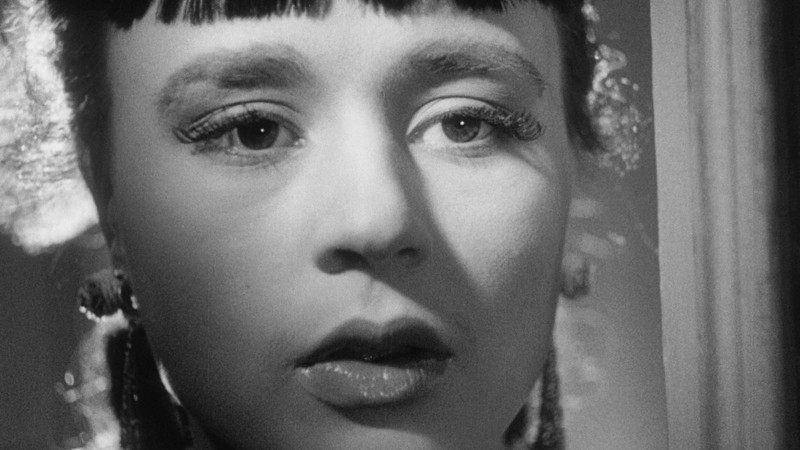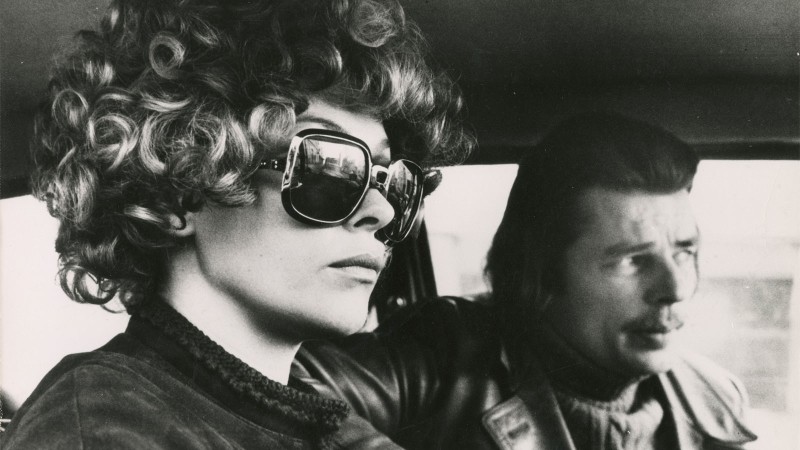Defining Communities

Bowie and Dylan fell for her, and Richard Avedon, David Bailey, and William Klein photographed her wearing clothes designed especially for her by Yves Saint Laurent and Paco Rabanne. Singer and songwriter Françoise Hardy passed away this week, and as Elisabeth Vincentelli writes in the New York Times, she was “an immediately identifiable performer who unleashed emotion by, counterintuitively, refusing to over-emote.” Interviewing her for the NYT in 2018, Agnès C. Poirier noted that, in the Swinging Sixties, Hardy “only needed to walk down the street in London to be offered a part in a film.” Hardy told her that “I far preferred music to cinema.”
- Rose Troche will be in Los Angeles tomorrow evening to talk about the new restoration of Go Fish (1994), which kicks off the Academy Museum series Full of Pleasure: The Beginnings of New Queer Cinema. Running through July 11, the series will include groundbreaking films from the early 1990s by Todd Haynes, Cheryl Dunye, Gus Van Sant, and more. Next Thursday, Troche will be joined by cowriter Guinevere Turner for Frameline’s screening in San Francisco. Troche and Turner met at an ACT UP event in Chicago, and with the help of producer Christine Vachon, they turned their short black-and-white comedy into a feature—the first to be sold at Sundance and a surprising box-office hit. In the Chicago Reader, Kyle Logan looks back on the film’s making and lasting impact, noting that it raised questions “about lesbian and queer culture more broadly, many of which remain the same today or have evolved but never ended.” At one point, Kia, a professor played by T. Wendy McMillan, asks, “What would you rather our collective lesbian image be? Hot, passionate, say-yes-to-sex dykes or touchy-feely, soft-focus sisters of the woodlands?”
- “Unlike the recent spate of eco-thrillers that mine suspense from human action (or inaction) within the frame,” writes Phoebe Chen for the Nation, Ryusuke Hamaguchi’s Evil Does Not Exist “urges us to notice the frame itself, implicating the very apparatus of the camera and narrative cinema in a striking critique of our perceptual habits and their material stakes.” In the Notebook, Sasha Frere-Jones writes about Hamaguchi’s work with composer Eiko Ishibashi. His eye and her ear “are two forces with the power to eclipse each other. The characters exist below them, on the earth, illuminated and obscured as the films progress.” Ishibashi’s theme for Evil “feels instantly canonical, like something that must already exist, more than a little like Ryuichi Sakamoto’s late work. It’s the kind of motif and slow-breathing arrangement that makes your chest open in anticipation of emotions you have not yet had.”
- Hiam Abbass (Munich, Succession) is “arguably the world’s most celebrated Palestinian actor,” writes Isabella Hammad, who talks with Abbass and her daughter, filmmaker Lina Soualem, for the Guardian. Soualem is also the daughter of actor Zinedine Soualem, and in Leur Algérie (2020), she paid tribute to his parents. In her new film, she traces the stories of her mother’s family. “At a moment when so much of the world’s attention is trained on the extraordinary violence of Israel’s military assault on Gaza,” writes Hammad, “Bye Bye Tiberias offers audiences another way to engage with the Palestinian experience. A eulogy and love letter both, the film explores the pain and richness of a Palestinian heritage transmitted through the maternal line, following four generations of women of Lina’s family.” Abbass says that audiences have received the film as “a piece of love. To talk about Palestinians in that way, and not just in terms of numbers of death or destruction, of people starved.”
- In her latest newsletter, Angelica Jade Bastién heartily recommends catching up with Jonathan Wacks’s Powwow Highway (1989), a road movie “alive in ways that are electric and true.” Buddy Red Bow (A Martinez) and Philbert Bono (Gary Farmer) set out from their Montana Cheyenne Reservation to bail out Buddy’s sister in Santa Fe. Powwow Highway is “biting” in its commentary on and “understanding of what it means to be Native American in modern times; an identity defined by complexity and the contradiction of being treated with indignity on land that is truly yours,” writes Bastién. While Philbert “speaks about Cheyenne community icons and mythologies with aplomb, finding truths hidden within the fabulistic,” for Red Bow, “all that matters is the material reality of the people on the reservation and what to do about this barbed reality right now.”
- We started this week with Richard Linklater, and we’ll wrap it with him as well. “Even within Linklater’s oeuvre of odd little films about weird American lives,” writes Jeremy Gordon in the Atlantic, Bernie (2011) “is an especially odd little film.” Jack Black plays real-life mortician Bernie Tiede, who becomes a beloved pillar of the community when he arrives in the East Texas town of Carthage. He befriends a despised wealthy widow, Marjorie (Shirley MacLaine), but ultimately shoots her dead. The district attorney (Matthew McConaughey) cleverly moves the trial out of town. “It doesn’t matter that, like some members of the jury,” writes Gordon, “Bernie is a white man, or that he’s also from Texas; fifty miles is all it takes for the familiar to become feared. And as the temperature of our national political rhetoric has been cranked up since 2011, with violence and vitriol demonstrated by elected and electorate alike, I sense something like a warning in Bernie about how little it takes for principles to be abandoned.”



